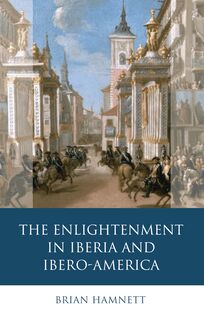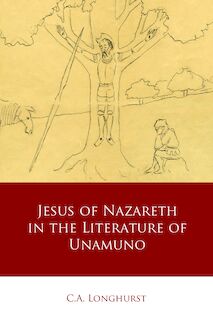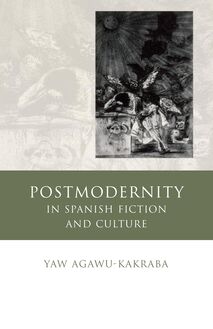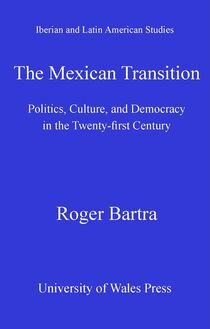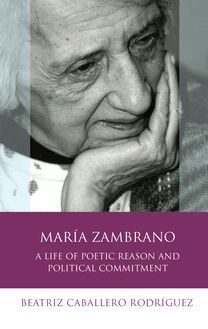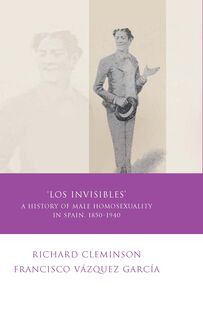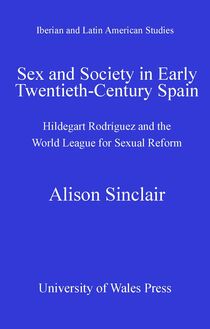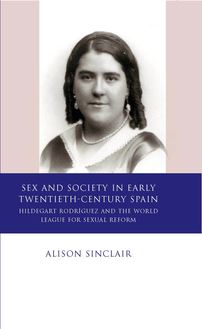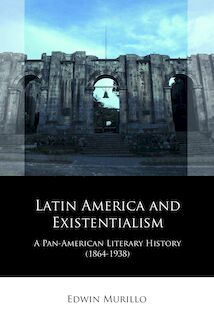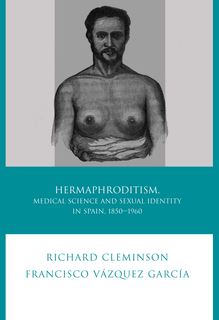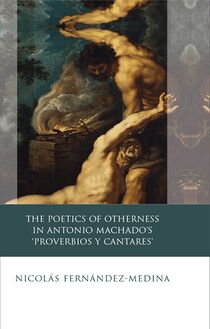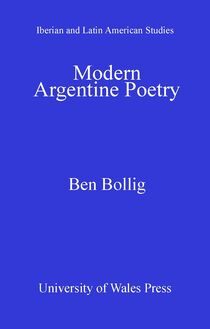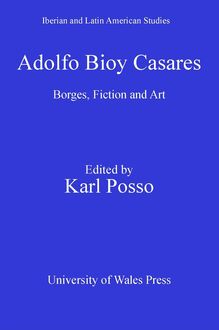-
 Univers
Univers
-
 Ebooks
Ebooks
-
 Livres audio
Livres audio
-
 Presse
Presse
-
 Podcasts
Podcasts
-
 BD
BD
-
 Documents
Documents
-
- Cours
- Révisions
- Ressources pédagogiques
- Sciences de l’éducation
- Manuels scolaires
- Langues
- Travaux de classe
- Annales de BEP
- Etudes supérieures
- Maternelle et primaire
- Fiches de lecture
- Orientation scolaire
- Méthodologie
- Corrigés de devoir
- Annales d’examens et concours
- Annales du bac
- Annales du brevet
- Rapports de stage
La lecture à portée de main
Vous pourrez modifier la taille du texte de cet ouvrage
Découvre YouScribe en t'inscrivant gratuitement
Je m'inscrisTheatre Censorship in Spain, 1931–1985 , livre ebook
Découvre YouScribe en t'inscrivant gratuitement
Je m'inscrisEn savoir plus
Vous pourrez modifier la taille du texte de cet ouvrage
En savoir plus

Description
This is a comprehensive study of the impact of censorship on theatre in twentieth-century Spain. It draws on extensive archival evidence, vivid personal testimonies and in-depth analysis of legislation to document the different kinds of theatre censorship practised during the Second Republic (1931–6), the civil war (1936–9), the Franco dictatorship (1939–75) and the transition to democracy (1975–85). Changes in criteria, administrative structures and personnel from these periods are traced in relation to wider political, social and cultural developments, and the responses of playwrights, directors and companies are explored. With a focus on censorship, new light is cast on particular theatremakers and their work, the conditions in which all kinds of theatre were produced, the construction of genres and canons, as well as on broader cultural history and changing ideological climate – all of which are linked to reflections on the nature of censorship and the relationship between culture and the state.
Acknowledgements
List of illustrations
List of abbreviations
Introduction
1. The Evolution of Theatre Censorship in Spain from the 1830s to the 1930s
2. Un teatro de ida y vuelta: All Change and No Change in the Second Republic and the Civil War
Case Study: Santa Teresita del Niño Jesús, by Vicente Mena Pérez
3. The Franco Dictatorship: Censorship as ‘Propaganda’, ‘Education’ and ‘Information’
Case Study: La casa de Bernarda Alba, by Federico García Lorca
4. The Pervasiveness of Censorship during the Dictatorship: Right-Wing Triumphalism, Commercial Theatre,
Revistas and Catalan Theatre
Case Study: La Infanzona, by Jacinto Benavente
5. The Realist Generation: A Spotlight on the Margins of Society
Case Study: Escuadra hacia la muerte, by Alfonso Sastre
6. Experimental, Avant-Garde and Independent Theatre: Pushing the Boundaries
Case Study: Castañuela 70, by Tábano and Las Madres del Cordero
7. The Censorship of Foreign Theatre: From Taming the Text to Disruptive Drama
Case Study: El círculo de tiza caucasiano, by Bertolt Brecht
8. Dénouement: Dismantling the Apparatus during the Transition to Democracy
Case Study: La torna, by Els Joglars/Albert Boadella
Conclusion
Bibliography:
Archival sources
Legislation
Other sources
Index
Sujets
Informations
| Publié par | University of Wales Press |
| Date de parution | 15 mai 2023 |
| Nombre de lectures | 0 |
| EAN13 | 9781786839848 |
| Langue | English |
| Poids de l'ouvrage | 2 Mo |
Informations légales : prix de location à la page 0,4700€. Cette information est donnée uniquement à titre indicatif conformément à la législation en vigueur.
Extrait
IBERIAN AND LATIN AMERICAN STUDIES
Theatre Censorship in Spain, 1931-1985
Series Editors
Professor David George (Swansea University)
Professor Paul Garner (University of Leeds)
Editorial Board
Samuel Amago (University of Virginia)
Roger Bartra (Universidad Aut noma de M xico)
Paul Castro (University of Glasgow)
Richard Cleminson (University of Leeds)
Catherine Davies (University of London)
Lloyd H. Davies (Swansea University)
Luisa-Elena Delgado (University of Illinois)
Maria Delgado (Central School of Speech and Drama, London)
Will Fowler (University of St Andrews)
David Gies (University of Virginia)
Gareth Walters (Swansea University)
Duncan Wheeler (University of Leeds)
Other titles in the series
Do a B rbara Unleashed: From Venezuelan Plains to International Screen
Jenni M. Lehtinen
Fantastic Short Stories by Women Authors from Spain and Latin America: A Critical Anthology
Patricia Grac a and Teresa L pez-Pellisa
Carmen Mart n Gaite: Poetics, Visual Elements and Space
Ester Bautista Botello
The Spanish Anarchists of Northern Australia: Revolution in the Sugar Cane Fields
Robert Mason
Paulo Emilio Salles Gomes: On Brazil and Global Cinema
Maite Conde and Stephanie Dennison
The Tlatelolco Massacre, Mexico 1968, and the Emotional Triangle of Anger, Grief and Shame: iscourses of Truth(s)
Victoria Carpenter
The Darkening Nation: Race, Neoliberalism and Crisis in Argentina
Ignacio Aguil
Catalan Culture: Experimentation, creative imagination and therelationship with Spain
Lloyd Hughes Davies, J. B. Hall and D. Gareth Walters
Madness and Irrationality in Spanish and Latin American Literature and Culture
Lloyd Hughes Davies
Catherine O Leary and Michael Thompson, 2023
All rights reserved. No part of this book may be reproduced in any material form (including photocopying or storing it in any medium by electronic means and whether or not transiently or incidentally to some other use of this publication) without the written permission of the copyright owner. Applications for the copyright owner s written permission to reproduce any part of this publication should be addressed to the University of Wales Press, University Registry, King Edward VII Avenue, Cardiff CF10 3NS.
www.uwp.co.uk
British Library CIP
A catalogue record for this book is available from the British Library.
ISBN: 978-1-78683-982-4
eISBN: 978-1-78683-984-8
The rights of Catherine O Leary and Michael Thompson to be identified as authors of this work have been asserted in accordance with sections 77 and 79 of the Copyright, Designs and Patents Act 1988.
The publisher has no responsibility for the persistence or accuracy of URLs for any external or third-party internet websites referred to in this book, and does not guarantee that any content on such websites is, or will remain, accurate or appropriate.
Cover image Freepik
To all the theatremakers who struggled against Francoist censorship To Lisa, Alex, Liam and Oscar
Contents
Series Editors Foreword
Acknowledgements
List of illustrations
List of abbreviations
Introduction
1 The Evolution of Theatre Censorship in Spain from the 1830s to the 1930s
2 Un teatro de ida y vuelta : All Change and No Change in the Second Republic and the Civil War
Case study: Santa Teresita del Ni o Jes s , by Vicente Mena P rez
3 The Franco Dictatorship: Censorship as Propaganda , Education and Information
Case study: La casa de Bernarda Alba , by Federico Garc a Lorca
4 The Pervasiveness of Censorship during the Dictatorship: Right-Wing Triumphalism, Commercial Theatre, Revistas and Catalan Theatre
Case study: La Infanzona , by Jacinto Benavente
5 The Realist Generation: A Spotlight on the Margins of Society
Case study: Escuadra hacia la muerte , by Alfonso Sastre
6 Experimental, Avant-Garde and Independent Theatre: Pushing the Boundaries
Case study: Casta uela 70 , by T bano and Las Madres del Cordero
7 The Censorship of Foreign Theatre: From Taming the Text to Disruptive Drama
Case study: El c rculo de tiza caucasiano, by Bertolt Brecht
8 D nouement: Dismantling the Apparatus during the Transition to Democracy
Case study: La torna , by Els Joglars/Albert Boadella
Conclusion
Bibliography
Archival sources
Legislation
Other sources
Notes
Series Editors Foreword
Over recent decades the traditional languages and literatures model in Spanish departments in universities in the United Kingdom has been superseded by a contextual, interdisciplinary and area studies approach to the study of the culture, history, society and politics of the Hispanic and Lusophone worlds - categories that extend far beyond the confines of the Iberian Peninsula, not only in Latin America but also to Spanish-speaking and Lusophone Africa.
In response to these dynamic trends in research priorities and curriculum development, this series is designed to present both disciplinary and interdisciplinary research within the general field of Iberian and Latin American Studies, particularly studies that explore all aspects of Cultural Production (inter alia literature, film, music, dance, sport) in Spanish, Portuguese, Basque, Catalan, Galician and indigenous languages of Latin America. The series also aims to publish research in the History and Politics of the Hispanic and Lusophone worlds, at the level of both the region and the nation-state, as well as on Cultural Studies that explore the shifting terrains of gender, sexual, racial and postcolonial identities in those same regions.
Acknowledgements
We wish to thank the institutions that made the Theatre Censorship in Spain project possible: the British Academy, which funded some of the preparatory work, and the Arts and Humanities Research Council, which funded the main period of research between 2008 and 2011. We are also grateful for the support provided over the years by the School of Modern Languages and Cultures at Durham University, the School of Modern Languages, Literatures and Cultures at Maynooth University and the School of Modern Languages at the University of St Andrews, and by colleagues in all those places. Institutions in Spain and the staff who work in them have been enormously helpful: the Archivo General de la Administraci n (AGA) in Alcal de Henares, the Arxiu Nacional de Catalunya in Sant Cugat del Vall s, the Biblioteca Nacional de Espa a, the Centro Documental de la Memoria Hist rica in Salamanca, the Ministerio de Cultura y Deporte, the Archivo Regional de la Comunidad de Madrid and the Centro de Documentaci n Teatral. Thanks are also due to the AGA and the Comunidad de Madrid for granting permission for the reproduction of images from their collections.
Our findings have been enriched by the memories of the authors, directors and actors who talked or wrote to us about their experience of censorship. Our heartfelt thanks go to Jos Luis Alonso de Santos, Fernando Arrabal, Josep Maria Benet i Jornet, Ferm n Cabal, Jes s Campos, Josep Anton Codina, Teresa del Olmo, Antonio D az Zamora, Mayca Est vez, ngel Facio, Alfonso Guerra, Jer nimo L pez Mozo, Jos Monle n, Francisco Nieva, Josep Maria Pou and Jos Mar a Rodr guez M ndez. We wish to pay tribute to Pat O Connor, whose pioneering work laid the foundations for our own investigations, as well as to Berta Mu oz C liz and to Raquel Merino lvarez (and the TRACE project), who have done much to highlight the importance of theatre censorship in Spain.
We are grateful to our post-doctoral research associate, Diego Santos S nchez, for his diligent archival work and skilful interviewing, and to Mary Bradshaw for her careful proofreading and transcription work, as well as to Lisa Goldman, Th tre Sans Fronti res in Hexham and the Cervantes Theatre in London for their enthusiastic collaboration with follow-up activities building on the Theatre Censorship in Spain project.
Some of the material in Chapter 2 was previously published in Spanish in Catherine O Leary, La censura del teatro durante la guerra civil espa ola (Madrid: Guillermo Escolar, 2020) as part of a Spanish government-funded project on civil war culture, directed by Emilio Peral Vega.
We are indebted to our friends and families for their support and encouragement throughout, and to Sarah Lewis at University of Wales Press for her flexibility and helpful advice. And finally, our profound thanks go to Gustavo and Jenn, whose loving patience has sustained us through the long gestation of this work.
List of illustrations
All illustrations apart from Figure 13 are courtesy of Ministerio de Cultura y Deporte (Spain), Archivo General de la Administraci n (AGA).
Figure 1:
Report on the premiere of Mariana Pineda by Federico Garc a Lorca (Madrid, 13 October 1927) (2 pages) (AGA: IDD (03)036.000, Caja 21/5822, Legajo 07398).
Figure 2:
Cover of a copy of the typescript of La Santa Hermandad by Eduardo Marquina submitted for censorship (1939) (AGA: IDD (03)046.000, Caja 73/8179, Expediente 464/39).
Figure 3:
Authorisation certificate for Y el Imperio volv a by Ram n Cu (31 January 1939) (AGA: IDD (03)046.000, Caja 73/08147, Expediente 6/39).
Figure 4:
Report by an inspector from the Direcci n General de Seguridad on the second performance of Santa Teresita del Ni o Jes s by Vicente Mena P rez (Madrid, 30 June 1933) (pages 1 and 4) (AGA: IDD (03)036.000, Caja 21/0646, Expediente 6192).
Figure 5:
Letter signed by F. G. de Canales (Delegado Nacional de Propaganda), sent to the head of the Secci n de Cinematograf a y Teatro, setting out criteria for theatre censorship (6 July 1943) (AGA: IDD (03)049.000, Caja 21/0646).
Figure 6:
Page from Act 2 of the typescript of La casa de Bernarda Alba by Federico Garc a Lorca, showing a cut recommended by a censor (AGA: IDD (03)046.000, Caja 73/08489, Expediente 193/43).
Figure 7:
Censor s report by Gumersindo Montes Agudo on El gran Galeoto by Jos Echegaray (11 November 1943) (2 pages) (AGA: IDD (03)046.000, Caja 73/08
-
 Univers
Univers
-
 Ebooks
Ebooks
-
 Livres audio
Livres audio
-
 Presse
Presse
-
 Podcasts
Podcasts
-
 BD
BD
-
 Documents
Documents
-
Jeunesse
-
Littérature
-
Ressources professionnelles
-
Santé et bien-être
-
Savoirs
-
Education
-
Loisirs et hobbies
-
Art, musique et cinéma
-
Actualité et débat de société
-
Jeunesse
-
Littérature
-
Ressources professionnelles
-
Santé et bien-être
-
Savoirs
-
Education
-
Loisirs et hobbies
-
Art, musique et cinéma
-
Actualité et débat de société
-
Actualités
-
Lifestyle
-
Presse jeunesse
-
Presse professionnelle
-
Pratique
-
Presse sportive
-
Presse internationale
-
Culture & Médias
-
Action et Aventures
-
Science-fiction et Fantasy
-
Société
-
Jeunesse
-
Littérature
-
Ressources professionnelles
-
Santé et bien-être
-
Savoirs
-
Education
-
Loisirs et hobbies
-
Art, musique et cinéma
-
Actualité et débat de société
- Cours
- Révisions
- Ressources pédagogiques
- Sciences de l’éducation
- Manuels scolaires
- Langues
- Travaux de classe
- Annales de BEP
- Etudes supérieures
- Maternelle et primaire
- Fiches de lecture
- Orientation scolaire
- Méthodologie
- Corrigés de devoir
- Annales d’examens et concours
- Annales du bac
- Annales du brevet
- Rapports de stage
